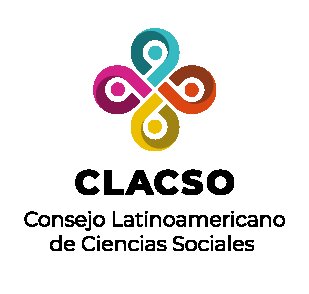Autores
Resumo
Resumen:En el presente escrito se muestran algunas argumentaciones por las cuales es posible suponer que las emociones no están desligadas de los marcos interpretativos de los movimientos sociales y de la misma forma de las acciones colectivas; y que por el contrario no podría comprenderse la acción colectiva sin dar cuenta de las emocionalidades que le subyacen. Las emociones entran en el espiral de la razón, y contribuyen en el proceso de razonamiento en vez de perturbarlos. Las emociones tienen una dirección hacia un objeto, este objeto tiene a su vez una descripción intencional, estas dos características hacen que las emociones no sean impulsos corporales, sino que estas estén ligadas a marcos culturales y sociales y que de forma directa aporten a la toma de decisiones e influyen en los procesos argumentativos y deliberativos de la acción social y política de los seres humanos.
Referências
Berezin, M. (1994). Fissured terrain: methodological approaches and research styles in culture and politics. En Crane, D. (ed.), The sociology of cultura. Londres: Basil Blackwell.
________. (1997). Politics and culture: a less fissured terrain. Annual Review of Sociology, 23, 361-383.
Bericat Alastuey, Eduardo. (2000). La sociología de la emoción y la emoción en la sociología. Universidad de Málaga, Departamento de Sociología, Málaga.
Bolívar, Ingrid. (2006). Discursos emocionales y experiencias de la política. Las Farc y Auc en los procesos de negociación del conflicto (1998-2005). Ediciones Uniandes - CESO.
Bonnell, V. E., y Hunt, L. (eds.). (1999). Beyond the cultural turn. New directions in the study of society and culture. Berkeley y Los Angeles: University of California Press.
Damasio, A. (2001). El error de Descartes: la razón, la emoción y el cerebro humano. Barcelona: Editorial Crítica.
De Zubiría, Sergio. (2007). Bioética, emociones e identidad. Departamento de Filosofía de la Universidad de los Andes, Bogotá.
Delgado, Ricardo. (2005). Análisis de los marcos de acción colectiva en organizaciones sociales de mujeres, jóvenes y trabajadores. CINDE, Universidad de Manizales.
Elster, Jon. (1999). Alquimias de la mente. La racionalidad y las emociones. Paidós, Argentina.
Gergen, Kenneth. (1996). Realidades y relaciones. Barcelona: Paidós.
Goodwin, J. (1997). The libidinal constitution of a high – risk social movement: Affectual ties and solidarity in the huk rebellion, 1946 to 1954. American Sociological review, 62, 53-69.
Goodwin J., Jasper, J. y Polletta, F. (2003). Why emotions matter. En Goodwin, J., Jasper, J., y Polletta. F. (eds.), Passionate politics (pp. 1-26). Chicago: The University of Chicago Press.
Gordon, S. L. (1990). Social Structural Effects on Emotions. En Theodore D. Kemper (ed.), Research Agenda in the Sociology of Emotions (pp. 145-179). State University of New York Press.
Gould, D. B. (2004). Passionate political processes: bringing emotions back into the study of social movements. En Goodwin, J., y Jasper, J. M. (eds.), Rethinking social movements: structure, meaning and emotion. Lanham, Maryland: Rowman & Littlefield Publishers.
Hochschild, A. D. (1975). The sociology of feeling and emotions: selected possibilities. En Milman, M., y Kanter, R. M. (eds.), Another Voice. Feminist perspectives on social Life and Social Science (pp. 280-307). Nueva York: Anchor Books.
JASPER, J. M. (1997): The art of moral protest. Culture, biography and creativity in social movements, Chicago, The University of Chicago Press.
— (1998): «The emotions of protest: affective and reactive emotions in and around social movements», Sociological Forum, Vol.13, 3: 397-424.
— (2004): «A strategic approach to collective action: looking for agency in social-movement choices», en Mobilization, 9 (1): 1-16.
Kemper, T. D. (1990a). Themes and Variations in the Sociology of Emotions. En Theodore D.
Kemper (ed.), Research Agenda in the Sociology of Emotions. State University of New York Press.
________. (1990b). Social Relations and Emotions: A Structural Approach. En Theodore D.
Kemper (ed.), Research Agendas in the Sociology of Emotions (pp. 207-237). State University of New York Press.
Latorre Catalán, Marta. (2005). Los movimientos sociales más allá del giro cultural: apuntes sobre la recuperación de las emociones. Política y Sociedad, 42(2), 37-48. Facultad de Ciencias Políticas y Sociología, Universidad Complutense de Madrid.
Lazarus, R. S., y Lazarus, B. N. (2000). Pasión y razón. La comprensión de nuestras emociones. Barcelona: Paidós.
Martínez Manrique, Fernando. (2009). Emoción, modularidad y acción racional. Universitas Philosophica, 52, 107-131. Bogotá, Colombia: Universidad Javeriana.
Mathews, H. F. (1992). The Directive Force of Morality Tales in a Mexican Community. En D’Andrade, R., y Strauss, C. (eds.), Human Motives and Cultural Models (pp. 127-162). Nueva York: Cambridge University Press.
Maturana, Humberto. (1997). Emociones y lenguaje en Educación política. Novena edición. CED (centro de Estudios de Desarrollo), Santiago
McCarthy, E. D. (1989). Emotions are Social Things: An Essay in the Sociology of Emotions.
En Franks, D. D., y McCarthy, E. D. (eds.), The Sociology of Emotions: Original Essays and Research Papers (pp. 51-72). Greenwich, Connecticut, Londres: Jai Press Inc.
Melucci, Alberto. (1995). The Process of Collective Identity. En Johnston, H., y Klandermans, B. (eds.), Social Movements and Culture (pp. 41-63). Minneapolis: University of Minnesota Press.
Morán, M. L. (1996). Sociedad, cultura y política: continuidad y novedad en el análisis cultural. Zona Abierta, 77/78, 1-29.
Nussbaum, Martha. (1995). Justicia poética. Santiago de Chile: Editorial Andrés Bello.
Otero, Silvia. (2006). Emociones y movimientos sociales: algunas claves útiles para estudiar el conflicto armado. En Colombia internacional, 063, 174-187. Bogotá: Universidad de los Andes.
Páez, D., Asún, D., y González, J. L. (1994). Emotional climate, mood and collective behavior: Chile 1973-1990. En Riquelme, H. (ed.), Era in twilight. Psychocultural situation under state terrorism in Latin America (pp. 141- 182). Bilbao: Instituto Horizonte.
Páez, Darío, et al. (2007). Teoría y método de la sicología social. Barcelona: Anthropos.
Peiró, J. M., Fernández Dols, J. M., y Morales, J. F. (2004). Tratado de psicología social. España: Síntesis.
Sartre, Jean Paul. (1973). Bosquejo de una teoría de las emociones. Madrid: Ed. Alianza Editorial. Schachter, S., & Singer, J. (1962). Cognitive, Social, and Physiological Determinants of Emotional State. Psychological Review, 69, pp. 379–399
Vargas Hernández, José Guadalupe. (2006). Crisis y transformaciones de la identidad-acción colectiva en México. Instituto tecnológico de Ciudad de Guzmán. Jalisco, México. Disponible en: http:// alberdi.de/CRISIS%20TRANS%20IDENTIDAD%20MEX.PUB.03.06.07.pdf

 PDF (Español)
PDF (Español)
 FLIP
FLIP

























